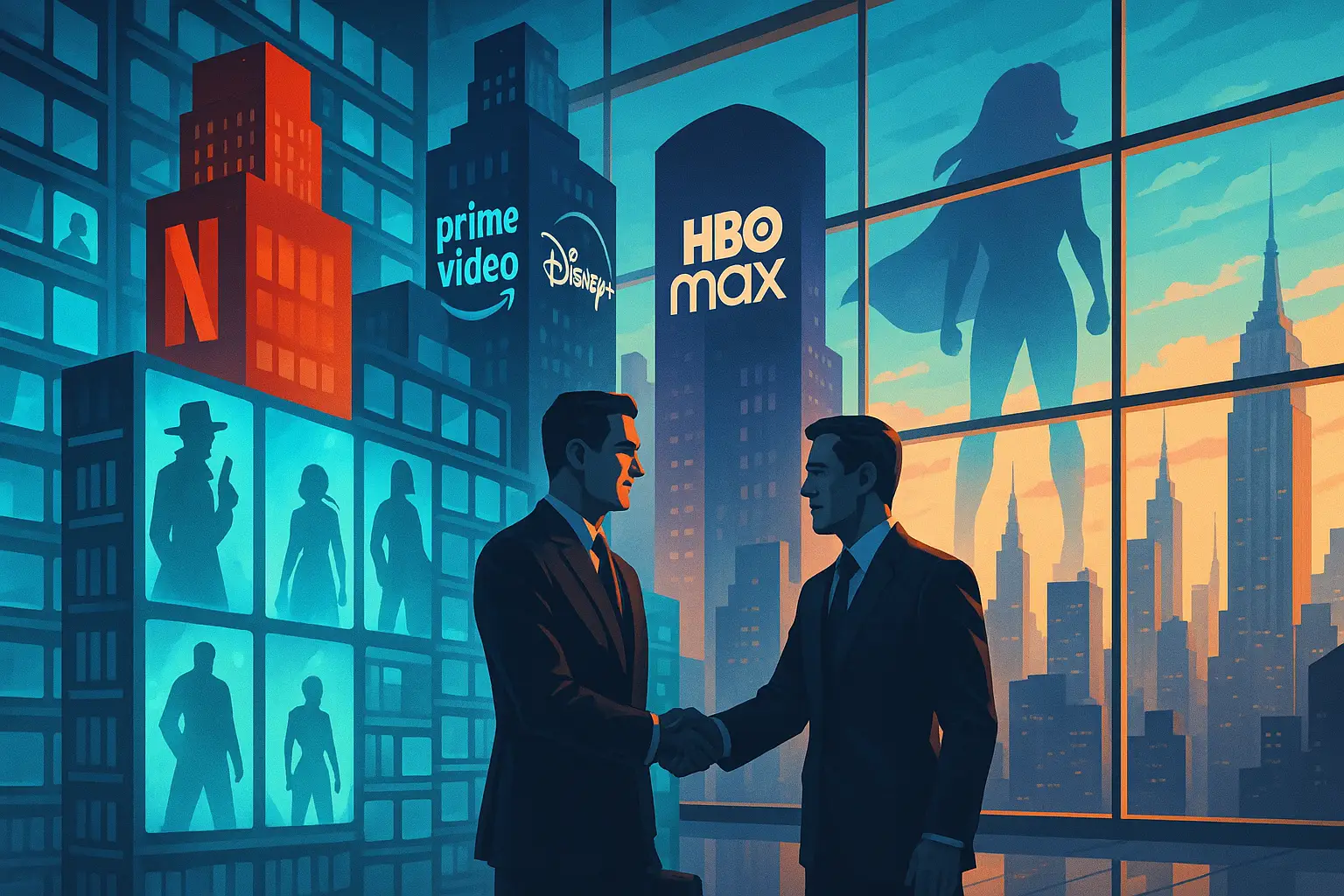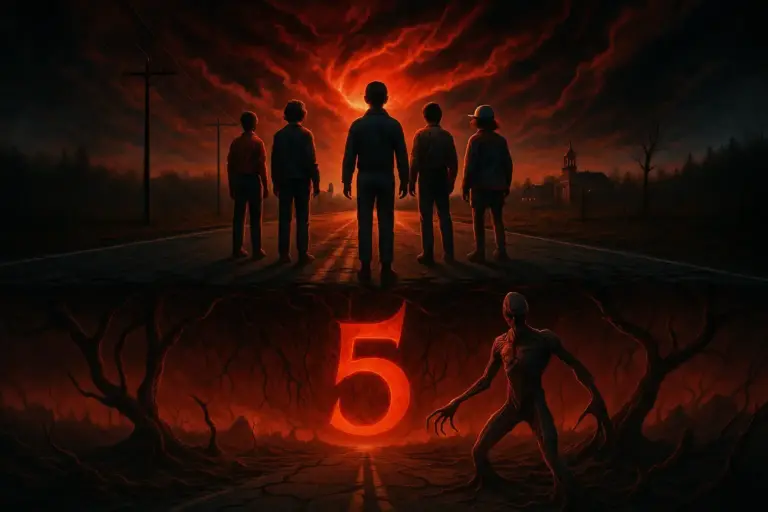So, you thought the streaming world was wild in 2024? Strap in, because the TV industry decided to grab summer 2025 by the collar and yank it straight into a new universe. Big money, legendary brands, and enough boardroom drama to power a whole season of “Succession.” Let’s get the popcorn and run through the latest mega-merger rollercoaster. Spoiler: your streaming queue might never look the same again.
The Paramount — Skydance Mash-up: Hollywood Power Play
First up, the industry-churning headline: Skydance Media and Paramount Global didn’t just flirt with a partnership. Nope. They signed the merger papers in July 2024, splashing around almost $8 billion on the deal, and the aftershocks are still rumbling through Hollywood a year later.
- Skydance swooped in with a $2.4 billion cash deal for National Amusements. That’s the company that controlled Paramount.
- Not stopping there, Skydance folded another $4.5 billion in cash and stock straight to Paramount’s shareholders.
- The grand prize? A new media monster: Paramount Skydance Corporation, a sharp-toothed hybrid with Skydance’s slick production skills and Paramount’s galaxy-sized library of content.
Seems pretty epic, right? Sure is. But this isn’t just a big pile of corporate cash and logos. It’s changing the very DNA of how TV gets made, sold, and watched. Why? Because suddenly, a library that stretches from “Mission: Impossible” all the way to SpongeBob SquarePants sits under one umbrella. With muscle like that, licensing deals can get snappier, and competitors start to sweat.
Library Wars: The Gold Rush for Content
Here’s where it gets spicy. When one company corners a crazy-big library, the game-board changes for everyone. Streaming isn’t just a playground for new originals. It’s a high-stakes auction block for classics and crowd-pleasers.
- Paramount’s stash alone boasts thousands of beloved titles, and now Skydance brings its own pop culture rocket fuel.
- Both companies now hold more cards in negotiations. It’s much easier to say “no thanks” to subpar licensing offers.
- Already, buzz is building about shorter licensing windows. Companies want hits on their own platforms as exclusives.
- Global distributors? Well, they might get fewer legacy shows to lease, or at least pay a premium for access.
That means if you love binging a certain ’90s classic on your favorite streamer, keep an eye open — your show could go MIA or hop to another platform simply because the rights changed hands.
The Warner Bros. Discovery Split: Two Heads Are (Sometimes) Better Than One
Just as you catch your breath, Warner Bros. Discovery (WBD) hurls itself into the chaos with a huge move of its own. In June 2025, WBD announced it would split into two separate, heavyweight media companies: Streaming & Studios and Global Networks.
- Streaming & Studios grabs the wheel on HBO, HBO Max, DC Studios, Warner Bros. Television, and the Motion Picture Group. CEO David Zaslav leads the charge.
- Meanwhile, Global Networks ropes in linear big shots like CNN, TNT Sports, Discovery, and Discovery+ under CFO Gunnar Wiedenfels.
- By dividing the empire, each arm can focus better. The streaming side wants to push for 150 million global subs by 2026, upping the ante for prestige shows, blockbusters, and IP-driven hits.
- The traditional networks side? Think live sports, news, and maximizing returns from the legacy TV crowd.
This bold move basically says, “Let’s stop spreading peanut butter so thin across the bread.” Each new company can serve its fans and advertisers exactly what they want — no more splitting attention or resources.
How Mergers Reshape Licensing Windows and Bingeable Libraries
Let’s get into the details that actually hit your couch. When these giant companies gobble up more of the market — and each other — they get pickier. They want to hold onto their juiciest titles and keep them close.
So, what happens to licensing windows? Here’s the scoop:
- Expect shorter windows on rival services, if you see licensed content at all.
- Exclusive deals are on the rise, making it harder to track where your favorite shows and movies live.
- Companies are looking for more binge-worthy originals to draw viewers during those exclusive periods.
Not only do these changes put viewers on the hunt for where shows live, but writers, producers, and dealmakers have to hustle harder. Suddenly, the biggest offers might only come from in-house productions, or platforms willing to overpay for top-tier exclusivity.
Writing the Next Chapter: Scribes and Creators Get New Leverage (Or Do They?)
Rising consolidation means content creators — writers, producers, and showrunners — enter a high-pressure, high-reward market. On one hand, massive libraries mean huge opportunities. Studios want to milk every dollar out of all that IP, so they commission spin-offs and remakes galore. On the other, fewer buyers might mean power shifts happen fast.
Let’s lay it out:
- When giant companies own more real estate, writers have fewer studios to pitch, but hefty budgets can make those deals bigger.
- New shows tied to massive IP (think Batman or Top Gun) promise big exposure, but they also come with heavy oversight.
- Independent studios and distributors see their slices shrink, so you’ll see more attempts at international co-productions, or “indie” corners of big media houses.
So the freelance market stays feisty, but writers with established connections to these mega-libraries can see sky-high deals.
Ripples Across the Pond and Beyond: Regional Frenzies
Think these turnarounds only matter in Hollywood? Guess again. International TV is feeling the tremors. Let’s jet north to Canada. In June 2024, Rogers Communications cut a fresh deal with Warner Bros. Discovery, nabbing Canadian rights to major brands. This pressed a reset button on the country’s specialty channel lineup and pushed competitors to scramble, rearrange, and even rebrand. Kind of like musical chairs — except the chairs are all big-budget TV channels.
Europe and Asia are no slouches either. Regional roll-ups keep accelerating. Global platforms want more local hits, and local broadcasters want access to big franchises. The result? Cross-border partnerships, complex licensing deals, and serious efforts to make local programming pop on the world stage. Suddenly, a drama from Seoul or a thriller from Madrid might hit your streaming service before you can say “global rollout.”
What Lands in Your Queue: The Viewer’s Experience
With all these shake-ups, let’s get real — this will change the way you watch, browse, and discover shows this summer. Here’s how:
- Major libraries get consolidated, so your streaming menus fill with more familiar classics from one corporate parent.
- Some old favorites might jump ship or disappear, depending on how studios tweak their licensing terms.
- And, you’ll probably see even more original series based on old titles — think beloved cartoons reimagined, or gritty reboots of family franchises.
For streaming junkies, it’s a double-edged sword. More exclusives sound exciting at first, but constant switching between platforms (and juggling subscriptions) might get costly, even confusing.
The Social Chatter: What Are Fans and Insiders Saying?
Reddit threads and Twitter feeds have become battlegrounds for TV fans and insiders. Everyone’s speculating where content will migrate next, which platforms will win the “IP wars,” and lamenting another exec suite shuffle. Interestingly, creators have popped up in r/television and r/entertainment, trading war stories about pitching to bigger, more streamlined development teams at these merged studios.
Many users share hints on tracking new licensing deals. Some even run spreadsheets mapping when specific shows might vanish from one service and resurface on another. Others joke about the need for a “Streaming GPS” to keep up with the changes. No one’s bored — and everyone’s got an opinion.
Roll Credits, Cue Next Season
Mega-mergers and media splits are reshuffling Hollywood’s power grids — not just for studios and executives, but for everyone who writes, produces, or just binge-watches after a long day. The Paramount — Skydance powerhouse and Warner Bros. Discovery’s two-headed gamble will shape the next generation of must-see TV. Whether you’re a rights-holder, a showrunner, or a simple fan with a big watchlist, 2025’s mergers guarantee one thing: the game is changing. So keep your remote close, your streaming passwords handier, and stay tuned — the TV map is getting redrawn, and your next favorite show might come from a corner you never expected.





